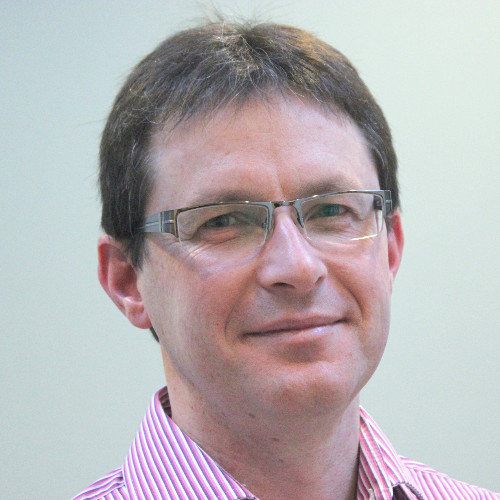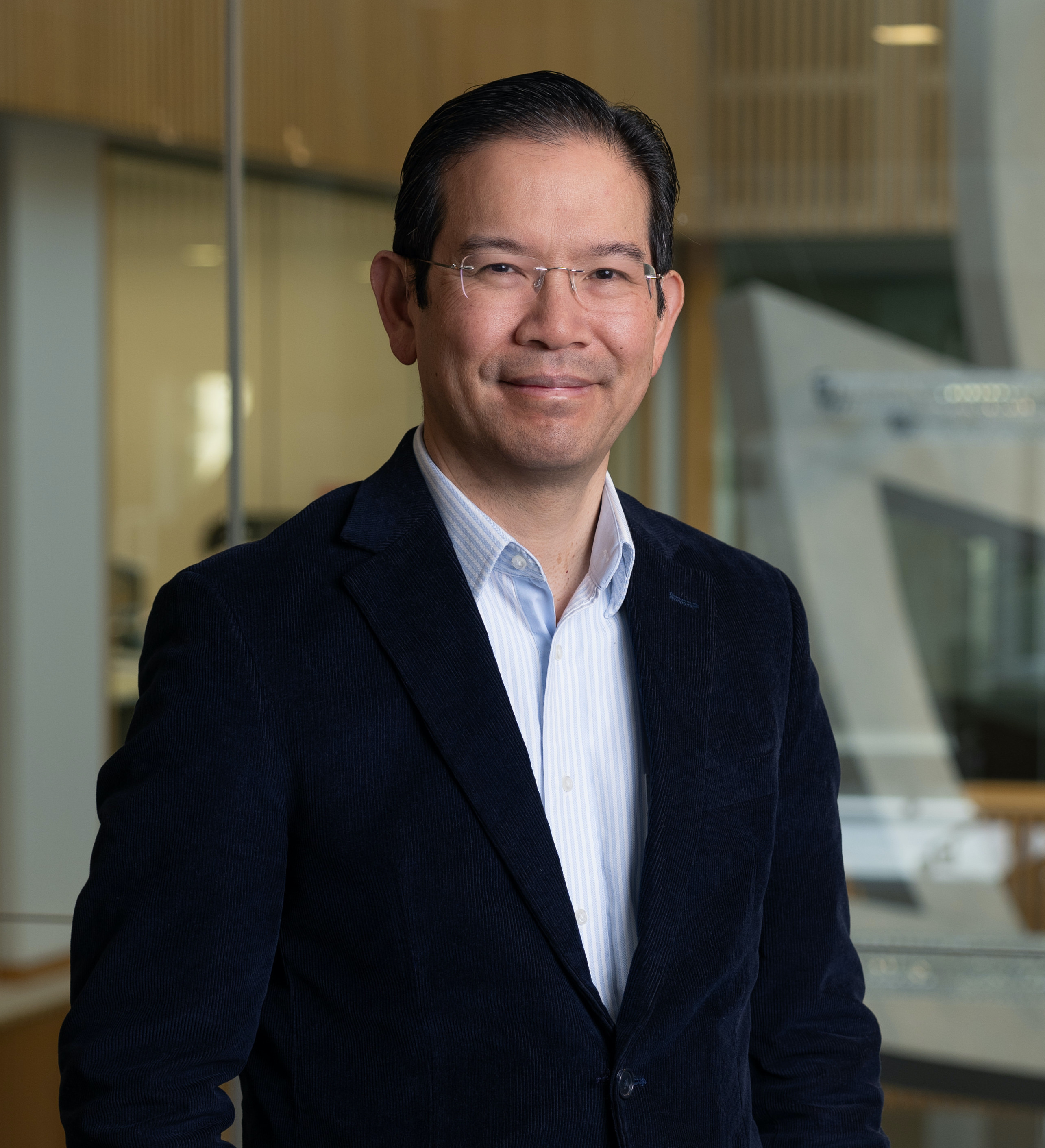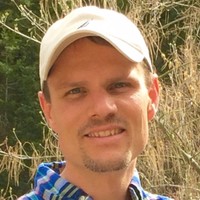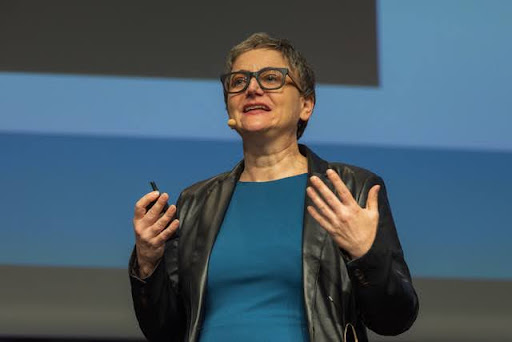| Workshops and Tutorials | |||||
|---|---|---|---|---|---|
|
8:00 AM - 9:00 AM
|
Registration Opens at Morris Inn |
||||
|
9:00 AM - 10:30 AM
|
PERMAVOST Room: Carmichael |
AI4SYS Room: Hesburgh |
QUASAR Room: Joyce |
||
|
10:30 AM - 11:00 AM
|
Coffee Break |
||||
|
11:00 AM - 12:30 PM
|
PERMAVOST Room: Carmichael |
AI4SYS Room: Hesburgh |
QUASAR Room: Joyce |
||
|
12:30 PM - 1:30 PM
|
(Lunch on Your Own) |
||||
|
1:30 PM - 3:00 PM
|
Tut.: Reproducible Perf Analysis Room: Carmichael |
FlexScience (+ FRAME) Room: Hesburgh |
QUASAR Room: Joyce |
||
|
3:00 PM - 3:30 PM
|
Coffee Break |
||||
|
3:30 PM - 5:00 PM
|
Tut.: Reproducible Perf Analysis Room: Carmichael |
FlexScience (+ FRAME) Room: Hesburgh |
QUASAR Room: Joyce |
||
|
8:00 AM - 8:45 AM
|
Registration Opens at Duncan Student Center 7th Floor |
|
|---|---|---|
|
8:45 AM - 9:00 AM
|
Welcome and IntroductionsGeneral Chairs: Douglas Thain, Jarek Nabrzyski |
|
|
9:00 AM - 10:00 AM
|
Keynote #1: Has HPC Changed Forever? And What Is Next?AbstractThis keynote will discuss how the world of HPC has changed in recent years, including the impact of large investments in supercomputing by the AI sector, and other themes such as GPUs, cloud, maturity, skills, etc. The speaker will share some observations from planning and operating the world’s largest supercomputers, comparing with experiences of HPC for “everyday scale” use cases, and will speculate on possible futures for the world of HPC.

Speaker: Andrew Jones, Microsoft
BiographyAndrew Jones leads the Future Capabilities for Supercomputing and AI within Microsoft Azure Engineering. He joined Microsoft in early 2020, following nearly 25 years of experience with scientific computing and supercomputing. He was initially a computational science researcher using HPC, later focusing on HPC technology research and performance evaluation, and then a HPC service architect and manager, and finally an impartial consultant with specialism in HPC strategy, technology evaluation, metrics, and cost/risk/value models. Known for his impartial advice, Andrew regularly shares insights on supercomputing, AI, cloud infrastructure, and related topics via social media @hpcnotes.Session Chair: Robert Wisniewski |
|
|
10:00 AM - 10:30 AM
|
Coffee Break |
|
|
10:30 AM - 12:15 PM
|
Numerical MethodsSession Chair: Jay Lofstead |
|
|
Virtualization So Light, it Floats! Accelerating Floating Point Virtualization (ACM publication) (slidedeck) Authors: Nicholas Wanninger , Nadharm Dhiantravan , Peter Dinda |
||
|
FloatGuard: Efficient Whole-Program Detection of Floating-Point Exceptions in AMD GPUs (ACM publication) (slidedeck) Authors: Dolores Miao , Ignacio Laguna , Cindy Rubio-González |
||
|
LiteForm: Lightweight and Automatic Format Composition for Sparse Matrix-Matrix Multiplication on GPUs (ACM publication) (slidedeck) Authors: Zhen Peng , Polykarpos Thomadakis , Jacques Pienaar , Gokcen Kestor |
||
|
Optimization of GNN Training Through Half-precision (ACM publication) (slidedeck) Authors: Arnab Tarafder , Yidong Gong , Pradeep Kumar |
||
|
12:15 PM - 1:15 PM
|
Lunch - Duncan Student Center |
|
|
1:15 PM - 3:00 PM
|
Model TrainingSession Chair: Ali Jannesari |
|
|
SAFusion: Efficient Tensor Fusion with Sparsification Ahead for High-Performance Distributed DNN Training (ACM publication) (slidedeck) Authors: Zhangqiang Ming , Yuchong Hu , Xinjue Zheng , Wenxiang Zhou , Dan Feng |
||
|
ModelX: A Novel Transfer Learning Approach Across Heterogeneous Datasets (ACM publication) (slidedeck) Authors: Arunavo Dey , Neil Antony , Aakash Raj Dhakal , Tapasya Patki , Aniruddha Marathe , Jae Seung Yeom , Tanzima Islam |
||
|
FT2: First-Token-Inspired Online Fault Tolerance on Critical Layers for Generative Large Language Models (ACM publication) (slidedeck) Authors: Yu Sun , Zhu Zhu , Cherish Mulpuru , Roberto Gioiosa , Zhao Zhang , Bo Fang , Lishan Yang |
||
|
Optimizing Data Distribution and Kernel Performance for Efficient Training of Chemistry Foundation Models: A Case Study with MACE (ACM publication) (slidedeck) Authors: Jesun Sahariar Firoz , Franco Pellegrini , Mario Geiger , Darren Hsu , Jenna A. Bilbrey , Han-Yi Chou , Maximilian Stadler , Markus Hoehnerbach , Tingyu Wang , Dejun Lin , Emine Kucukbenli , Henry W. Sprueill , Ilyes Batatia , Sotiris S. Xantheas , MalSoon Lee , Chris Mundy , Gabor Csanyi , Justin S. Smith , Ponnuswamy Sadayappan , Sutanay Choudhury |
||
|
3:00 PM - 3:30 PM
|
Coffee Break |
|
|
3:30 PM - 4:45 PM
|
Storage SystemsSession Chair: Hariharan Devarajan |
|
|
TSUE: A Two-Stage Data Update Method for an Erasure Coded Cluster File System (ACM publication) (slidedeck) Authors: Zheng Wei , Jing Xing , Yida Gu , Wenjing Huang , Dong Dai , Guangming Tan , Dingwen Tao |
||
|
AutoSSD: CXL-Enhanced Autonomous SSDs for Low Tail Latency (ACM publication) (slidedeck) Authors: Mingyao Shen , Suyash Mahar , Heewoo Kim , Joseph Izraelevitz , Steven Swanson |
||
|
DPU-KV: On the Benefits of DPU Offloading for In-Memory Key-Value Stores at the Edge (ACM publication) (slidedeck) Authors: Arjun Kashyap , Yuke Li , Xiaoyi Lu |
||
|
6:00 PM - 9:00 PM
|
Evening Posters and Reception in Duncan Student Center |
|
|
The conference opening reception will be held in the Dahnke Ballroom on the 7th floor of the Duncan Student Center, overlooking the historic football stadium. (This is the same area as the conference main sessions.) A buffet dinner will be served, with meat, vegan, and gluten free options. The conference posters will be presented at this evening event, please use the opportunity to mingle and learn more. |
||
|
8:00 AM - 9:00 AM
|
Registration in Duncan Student Center 7th Floor |
|
|---|---|---|
|
9:00 AM - 10:00 AM
|
Keynote : Physics-Aware, Full-Stack Software to Accelerate Practical Quantum ComputingAbstractQuantum software can be a force multiplier that can significantly shorten the timeline for utility-scale results from quantum hardware. In particular, several key research directions will help realize practical quantum advantage. Physics-aware, cross-layer optimizations will continue to yield important efficiencies to allow applications to make the most of quantum resources. Software-directed noise-aware optimization and error correction, in particular, will be key to increasing gate depths and maintaining acceptable output fidelity. Pulse-level optimizations and specialized native gates will also be key enablers. Additionally, applications will be hybrid computations involving high-performance classical resources as well as quantum hardware serving as special-purpose accelerators. Effectively partitioning computations between these classical and quantum resources will be necessary to support realistic applications. Additionally, deep compiler optimization and classical simulation of Clifford and near-Clifford circuits can also be important classical investments towards more efficient quantum computations. Finally, defining abstractions that control compiler complexity yet selectively expose key physical machine properties will also be a key area of research.

Speaker: Fred Chong, University of Chicago
BiographyFred Chong is the Seymour Goodman Professor in the Department of Computer Science at the University of Chicago and the Chief Scientist for Quantum Software at Infleqtion. Chong is a member of the National Quantum Advisory Committee (NQIAC) which provides advice to the President on the National Quantum Initiative Program. In 2020, he co-founded Super.tech, a quantum software company, which was acquired by Infleqtion (formerly ColdQuanta) in 2022. Chong received his Ph.D. from MIT in 1996 and was a faculty member and Chancellor's fellow at UC Davis from 1997-2005. He was also a Professor of Computer Science, Director of Computer Engineering, and Director of the Greenscale Center for Energy-Efficient Computing at UCSB from 2005-2015. He is a fellow of the ACM and the IEEE, a recipient of the NSF CAREER award, the Intel Outstanding Researcher Award, and 16 best paper awards. He is also a recipient of the Quantrell Award, the oldest undergraduate teaching award in the United States, as well as the University of Chicago's Graduate Teaching and Mentoring Award.Session Chair: Devesh Tiwari |
|
|
10:00 AM - 10:30 AM
|
Coffee Break |
|
|
10:30 AM - 12:15 PM
|
Efficiency and SustainabilitySession Chair: Jarek Nabrzyski |
|
|
CarbonEdge: Leveraging Mesoscale Spatial Carbon-Intensity Variations for Low Carbon Edge Computing (ACM publication) (slidedeck) Authors: Li Wu , Walid Hanafy , Abel Souza , Khai Nguyen , Jan Harkes , David Irwin , Mahadev Satyanarayanan , Prashant Shenoy |
||
|
Advancing Scientific Data Compression via Cross-Field Prediction (ACM publication) (slidedeck) Authors: Youyuan Liu , Wenqi Jia , Taolue Yang , Jiang Bo , Miao Yin , Sian Jin |
||
|
Parameterized Algorithms for Non-uniform All-to-all (ACM publication) (slidedeck) Authors: Ke Fan , Jens Domke , Seydou Ba , Sidharth Kumar |
||
|
Top-Down SBP: Turning Graph Clustering Upside Down (ACM publication) (slidedeck) Authors: Frank Wanye , Vitaliy Gleyzer , Edward Kao , Wu-chun Feng |
||
|
12:15 PM - 1:00 PM
|
Lunch - Duncan Student Center |
|
|
1:00 PM - 2:00 PM
|
Industry TalkTalk #1: The HPC Revolution: Accelerating the Future of Science and AIAbstractHigh-Performance Computing (HPC) is not just a service we offer; it is part of Google's foundational DNA. This presentation explores the deep history of HPC within Google, from the early days of massive-scale indexing and distributed computing with technologies like MapReduce and Borg, to the sophisticated infrastructure that powers our global services today. We will trace this unique evolutionary path, demonstrating how decades of internal innovation in running planetary-scale workloads have directly informed the architecture and capabilities of Google Cloud's HPC offerings. Attendees will learn how this heritage translates into a robust and flexible cloud ecosystem designed to support the most demanding research challenges. Furthermore, we will delve into how Generative AI is revolutionizing the very methods of HPC development and management. We will discuss how services like Gemini Code Assist are accelerating the creation of complex simulation code and simplifying workflow scripting, while platforms like Google Colab provide an accessible environment for prototyping and analysis. Through real-world case studies in fields such as genomics and climate science, we will highlight how our infrastructure, now augmented by AI-powered tools, is empowering researchers to push the boundaries of discovery. Finally, we will look to the future, discussing how Google is continuing to democratize access to world-class HPC, fostering innovation, and helping the scientific community solve the grand challenges of tomorrow.
Speaker: Charles Elliot, Google
BiographyCharles Elliott is a Head of Industry at Google Cloud, leading initiatives that transform education through the power of technology, particularly generative AI. Building on a successful consulting career focused on Big Data, Analytics, and AI, Charles now leverages his extensive expertise to guide educational institutions and ed-tech companies in realizing the potential of personalized learning at scale. With over 14 years of experience, he specializes in bridging cutting-edge cloud solutions with the specific needs of the education sector. As a trusted advisor, he empowers organizations to enhance learning experiences, improve accessibility, and drive measurable educational outcomes. His work spans early childhood education, machine learning applications, and strategic cloud implementation, with a focus on leveraging generative AI to unlock new possibilities in personalized learning. Charles continues to contribute to Google's Customer Advisory Boards, fostering innovation across the industry.Talk #2: Unified Data Engine for Accelerated Research: Modernizing Scientific Data Lakes for the AI EraAbstractScientific discovery increasingly relies on vast and diverse datasets that span simulation outputs, sensor data, experimental results, and AI models. Yet many research computing environments still operate with fragmented storage silos and brittle data movement pipelines — slowing insight, increasing cost, and limiting reproducibility.In this session, we’ll explore how VAST Data’s unified data platform transforms traditional scientific data lakes into high-performance, AI-ready data engines. We’ll demonstrate how consolidating structured and unstructured data on a single, scalable namespace dramatically simplifies pipeline complexity, accelerates time to insight, and enables seamless collaboration across HPC and AI workflows. We’ll dive into real-world examples showing how research organizations leverage the VAST Data Platform to: 1) Eliminate unnecessary data copies and staging 2) Provide insights into data sets to simplify analytics 3) Run large-scale training and inference directly from shared storage 4) Accelerate reproducibility and scientific throughput Whether you’re supporting physics simulations, biomedical research, or climate modeling, this session will provide practical strategies to modernize your data architecture and empower AI-powered science at scale. 
Speaker: Kyle Lamb, VAST Data
BiographyKyle Lamb has over 25 years of experience in computing, with 15 years specifically focused on HPC. His most recent role is as the Field CTO for HPC at VAST Data, where he has been since November 2020. Previously, he managed federal systems engineering at DDN Storage and was a Senior Staff Engineer at Seagate Government Solutions. His significant tenure at Los Alamos National Laboratory as a Computer Engineer included roles such as HPC Storage Team Lead and Architect. Kyle began his career as a Computer Engineer with the US Army, where he worked for over a decade. His expertise spans high-performance computing, AI/ML, systems architecture, and engineering support for critical government and military infrastructure.Chair: Jarek Nabrzyski |
|
|
2:00 PM - 3:00 PM
|
Panel DiscussionTomorrow’s HPC/HPDC: Golden Age, Cambrian Explosion, Both, Something Else?AbstractIn their 2017 Turing Lecture, Hennessy and Patterson declared that we were entering a “Golden Age” of computer architecture, and in fact it seems that high end computing using advanced architecture has become central to everything we now do daily. Multi-core chips and GPUs rule unchallenged but were virtually unheard of 20 years ago. New 100MW data centers appear daily. However, it is becoming clear that we may need to consider rebooting what we mean by “computation,” especially at the high end. It took 7 years longer to get from classical “petascale” computation to “exascale” than it did from “terascale” to “petascale.” Is another 1000X (“zettascale”) even possible?At the same time radically new computational “lifeforms” are crawling onshore. To suggest a few, photonics already rules all but nearest neighbor networking, novel technologies are emerging that allow “memory” to do computation that breaks the von Neumann bottleneck, and quantum totally changes what it means to do computation. AI seems poised to invade every aspect, even classical “scientific” computation. The rise of social media means that we are dealing with graph-like structures with billions of vertices and trillions of edges. Networking everything means that computation now occurs “everywhere.” This panel will discuss these phenomena and what that means we might see featured at HPDC five and ten years from now. Members: Michela Taufer, University of Tennessee - Knoxville; Tom Conte, Georgia Tech; Chair: Peter Kogge, University of Notre Dame | |
|
3:00 PM - 3:30 PM
|
Coffee Break |
|
|
3:30 PM - 4:50 PM
|
Clouds and FaaSSession Chair: Hao Wang |
|
|
F3: An FPGA-accelerated FaaS Framework (ACM publication) (slidedeck) Authors: Charalampos Mainas , Martin Lambeck , Bruno Scheufler , Laurent Bindschaedler , Atsushi Koshiba , Pramod Bhatotia |
||
|
PathFence: Reducing Cross-Path Dependencies in Microservices (ACM publication) (slidedeck) Authors: Xuhang Gu , Qingyang Wang |
||
|
FluidFaaS: A Dynamic Pipelined Solution for Serverless Computing with Strong Isolation-based GPU Sharing (ACM publication) (slidedeck) Authors: Xinning Hui , Yuanchao Xu , Xipeng Shen |
||
|
6:00 PM - 9:30 PM
|
Dinner Reception at Studebaker National Museum |
|
|
Join us for an evening dinner reception at the Studebaker National Museum in downtown South Bend. Conference attendees will be free to explore the entire museum full of classic vehicles and exhibits of South Bend history. A buffet dinner will be served. |
||
|
8:00 AM - 9:00 AM
|
Registration in Duncan Student Center 7th Floor |
|
|---|---|---|
|
9:00 AM - 10:00 AM
|
2025 HPDC Achievement Award Keynote : Designing for Trust, Transparency, and Efficiency in Scientific ComputingAbstractToday, scientific computing workflows are increasingly operating at scales where nondeterminism, opaque AI decisions, and rising energy demands are no longer exceptions—they have become the norm. In this talk, I will present the concrete methods we are using to address these challenges within the scientific discovery process. Specifically, I will demonstrate how graph-based analysis can reveal sources of nondeterminism in large High-Performance Computing (HPC) simulations, how fine-grained provenance frameworks can enhance transparency in AI-driven workflows, and how predictive engines can eliminate redundant computations in neural architecture search, thereby significantly reducing energy costs.Beyond individual solutions, I will outline a broader vision for computing that integrates data, experiments, and computation into comprehensive scientific ecosystems, exemplified by the National Science Data Fabric (NSDF). The talk will connect technical advancements to the larger goal of producing scientific results that are trustworthy, explainable, and efficiently generated at scale.

Speaker: Michela Taufer, University of Tennessee - Knoxville
BiographyDr. Michela Taufer, an American Association for the Advancement of Science Fellow and Association for Computing Machinery Distinguished Scientist, holds the Jack Dongarra Professorship in High-Performance Computing (HPC) at the University of Tennessee, Knoxville. She earned her B.S. in Computer Engineering (University of Padova, Italy) and Ph.D. in Computer Science (ETH Zurich, Switzerland). A former postdoctoral fellow at the University of California, San Diego and The Scripps Research Institute, Dr. Taufer is dedicated to multidisciplinary research, connecting computational and experimental sciences. Her work focuses on designing HPC, cloud, and volunteer computing solutions, applying artificial intelligence/machine learning to scientific applications, and advancing algorithms and workflows with a solid commitment to reproducibility and transparency in research.Session Chair: Manish Parashar |
|
|
10:00 AM - 10:30 AM
|
Coffee Break |
|
|
10:30 AM - 12:15 PM
|
Tuning and PerformanceSession Chair: Jay Lofstead |
|
|
Grudon: A System for Deploying Graph Workloads on Disaggregated Architectures with Near-Data Processing (ACM publication) (slidedeck) Authors: Vishal Rao , Nikhil Ram Shashidhar , Suyeon Lee , Ada Gavrilovska |
||
|
HYPERF: End-to-End Autotuning Framework for High-Performance Computing (ACM publication) (slidedeck) Authors: Juseong Park , Yongwon Shin , Junghyun Lee , Junseo Lee , Juyeon Kim , Oh-Kyoung Kwon , Hyojin Sung |
||
|
Privacy-preserving of HPC Traces for Data Sharing and Analysis (ACM publication) (slidedeck) Authors: Ana Luisa Veroneze Solórzano , Rohan Basu Roy , Devesh Tiwari , Benjamin Schwaller , Sara Petra Walton , Jim M. Brandt |
||
|
Weight-Sharing NAS with Architecture-Agnostic Intermediate Representation (ACM publication) (slidedeck) Authors: Sixing Yu , Arya Mazaheri , Ali Jannesari |
||
|
12:15 PM - 1:00 PM
|
Lunch |
|
|
1:00 PM - 2:30 PM
|
Best Paper and Best Student Paper FinalistsSession Chair: Robert Wisniewski |
|
|
[BEST PAPER] Out-of-Core Parallel Spatial Join Outperforming In-Memory Systems: A BFS-DFS Hybrid Approach (ACM publication) Authors: Lyuheng Yuan , Da Yan , Akhlaque Ahmad , Jiao Han , Saugat Adhikari , Yang Zhou |
||
|
IPComp: Interpolation Based Progressive Lossy Compression for Scientific Applications (ACM publication) (slidedeck) Authors: Zhuoxun Yang , Sheng Di , Longtao Zhang , Ruoyu Li , Ximiao Li , Jiajun Huang , Jinyang Liu , Franck Cappello , Kai Zhao |
||
|
[BEST STUDENT PAPER] LegoIndex: A Scalable and Modular Indexing Framework for Efficient Analysis of Extreme-Scale Particle Data (ACM publication) (slidedeck) Authors: Chang Guo , Ning Yan , Lipeng Wan , Zhichao Cao |
||
|
2:30 PM - 3:00 PM
|
Awards and Closing RemarksHPDC 2026 Announcement Best Poster Award Best Student Paper Award Best Paper Award |
|
